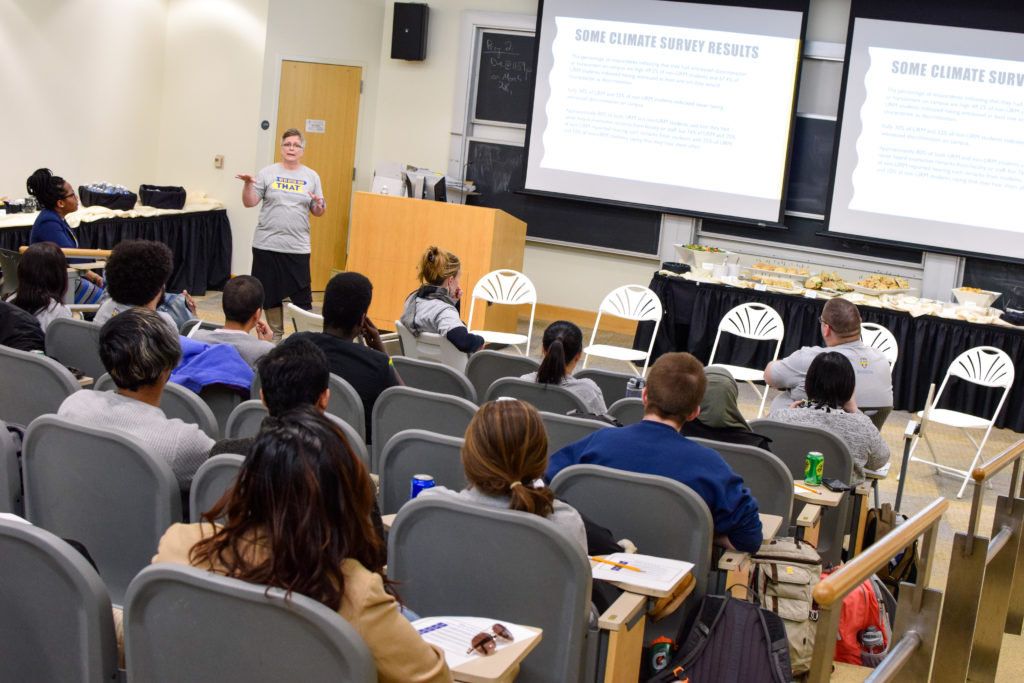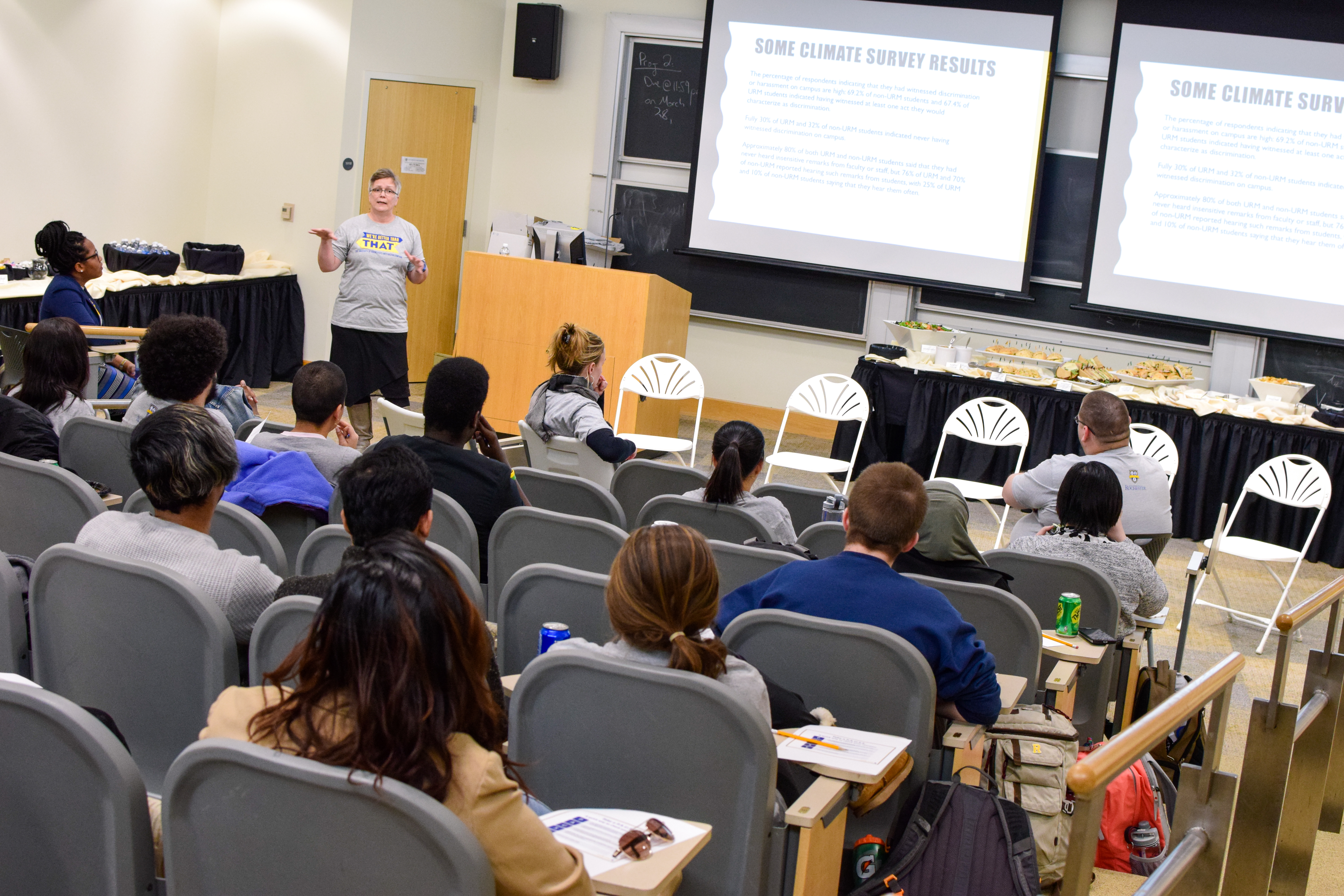As students filed into the lecture hall in Goergen, they were invited to pick up an index card and pencil and write down their answers to three questions.
The first question asked what stories and stereotypes we have inherited or been told about racial differences. The second asked whether we believed those stories—and why? The third question asked the audience to define racism.
The Student Panel and Training on Race, held Tuesday evening in a nearly-empty Goergen lecture hall, was part of the International Day for Elimination of Racial Discrimination. The two-hour event was led by Dean for Diversity Beth Olivares and Academic Program Coordinator for the Office of Minority Student Affairs Sasha Eloi, alongside five students who shared their experiences of race relations and discrimination at the University.
About twenty people were in attendance when the event began at 6:15 p.m., including the organizers and the student panel. A table by the entrance offered free “We’re Better Than That” T-shirts, although almost everyone at the event was already wearing one.
Eloi and Olivares opened the event by explaining the concept of “stock stories”—similar to conventional wisdom, they are the predominant stereotypes and narratives in a society. Stock stories, they explained, are passed down through families, schools, and media, but don’t tend to speak for everyone.
“Rosa Parks was just tired,” was one example of a stock story given by the presenters, and “racism is long gone” was another.
The presentation continued with a definition of racism as “dislike, unfair treatment, or vilification on the basis of perceived difference and the idea that one group is superior to the other.” Olivares said to fight racism, it is important to have a good definition of it.
Racism can appear in social structures that “limit, exclude, oppress, or discriminate,” Eloi and Olivares went on to explain. It can be intentional or unconscious, they said, and tends to show up in three domains.
The first, institutional or systemic racism, manifests in laws and policies that favor one race over another, even if they are not intended to do so. Cultural racism, on the other hand, manifests in beauty standards that favor one race over others, for example. The last, individual racism, is seen in interactions between two people.
Moving on from the opening segment, Eloi and Olivares introduced the idea of “concealed stories”—things people don’t know just by looking at one another. By way of an example, they discussed the results of the 2016 Campus Climate Survey. In the survey, few students reported hearing insensitive remarks from University faculty or staff, but 76 percent of minority students and 70 percent of non-minority students reported hearing such remarks from other students. More than 10 percent of students reported experiencing discrimination directly.
Fresh from this discussion, the five student panelists took the floor to share their personal stories regarding race and discrimination on campus. Senior Simone Johnson related an incident in which her psychology paper on suicide in black men was criticized by her professor because, the professor told Johnson, “racism cannot affect your mental health.”
Senior Edwin Aguila, who spoke next, discussed the 2013 incident when a Confederate flag was displayed in the window of a house on the Fraternity Quad.
Junior Delvin Moody described the concept of “tokenism” at UR—being accepted by fellow students as long as he acted in a “European way” and didn’t bring up issues of race.
At the end of the event, Eloi and Olivares termed these “counterstories,” which allow people to ask questions about the stock stories they believe, and build resistance to racism. They urged students to take action against racism by challenging racist beliefs and using the bias-related incident reports when they see or experience discrimination on campus.


